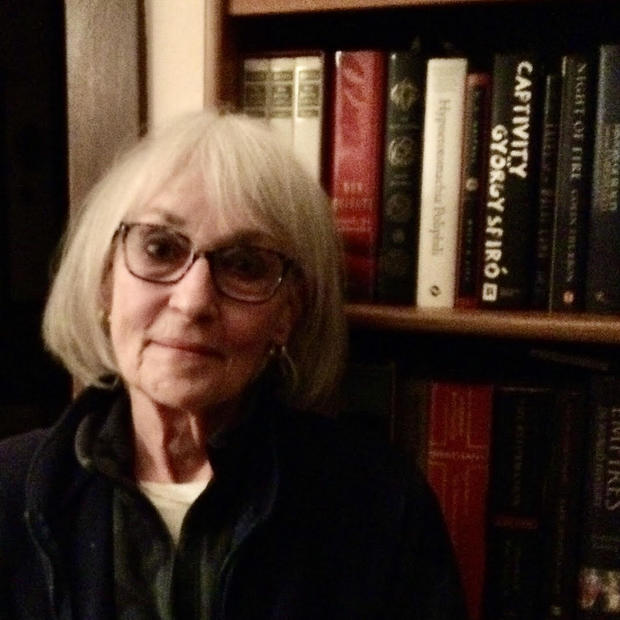Critics have praised the brave originality that went into creating a rock musical about a mother who suffers from bipolar disorder and the impact of her incurable illness on her family. After a two-year run on Broadway honored by Tony and Pulitzer awards, Next to Normal is now touring nationally and just opened at Seattle’s 5th Avenue Theatre.
Watching Next to Normal, whose script is almost entirely sung, is like watching members of the chorus in an ancient Greek tragedy comment on the central action. But in the musical there's little action separate from the commentary, so the singers' sentiments are what constitute the play. The members of the Goodman family keep on telling themselves and each other how they feel, what they want, and who they really are.
Despite the potential inertia of a plot that explores the woes of a suburban family struggling to stay psychologically afloat, playwright Brian Yorkey and musician Tom Kitt keep things moving along. They keep things moving in the emotional sense of the word, too.
Kitt’s music is rousing, often inspired. Rock gives a healthy heartbeat to the characters' reflections on lives balked and stalled by illness, and the forms of repetition available to song let the meanings of words change in the mouths of different speakers.
For instance, in the jaunty opening number, “Just Another Day,” the title refrain suggests that “it’s merely another day” — i.e., it's not Doomsday. But when daughter Natalie repeats the phrase, it hints that she can survive “if it’s only another day” she has to face, not the miserable lifetime of days she sees stretching out ahead in morning light. Stop the days, I want to get off, she seems to say.
Artful staging deserves credit, too, for energy and forward movement. As lighted by designer Kevin Adams, Mark Wendland’s fine set radiates a life of its own. Small groups of musicians play shadowy instruments in the upper reaches of a scaffold shaped like a suburban house. Along the ironwork and through the latticed rooms, director Michael Greif has the characters move like passing thoughts.
So the space begins to evoke a human psyche even before the dramatic moment when the back wall turns into a magnified photograph of the mother's mournful face. The set is dim yet electric, as ironclad as past events yet porous. Movable translucent panels won’t let rooms stay compartmentalized — slippage is always imminent, and the mind won’t be tidied up.
Diana, the mother (Alice Ripley) is pulled in the same direction by her husband Dan (Asa Somers) and her doctors (both well played by Jeremy Kushnier). One target of the men's ministrations is Diana's aching memory of a child's death 16 years ago, which might have triggered a genetic predisposition to bipolar disorder. Dan is sure that with intensive psychiatric treatment his wife will forget her pain and everything will “get back to normal.”
But the long-ago memory haunts Diana, offering a dark companionship she dreads losing. Being drawn deeper into madness can feel desirable to someone who is pronounced “stable” only after medications make her stop feeling anything.
So the contradictions and limitations of psychiatric treatment come to vivid life in Next to Normal. As Diana swings between periods of depression and manic delusion, depending on which meds she’s given, she dryly remarks, “Not a very exact science, is it.” And the psychiatrist makes an unintentionally revealing comment on why antipsychotic drugs are so often prescribed: “It’s all we’ve got.”
There's also trenchant criticism of how Americans generally deal with feelings. Even without mental illness in our families, we hide our fears behind fake or wine-induced smiles, cram our calendars with distractions from emptiness, and grieve painful losses in rationally prescribed stages. The play's songs about numbness (“I Miss My Life,” “Wish I Were Here”) apply to supposedly sane people, too.
Asa Somers is stalwart as the devoted husband, and the young actors deserve high marks. Emma Hunton's Natalie has a bell-clear voice and a subtly awkward adolescent grace. When she just wants to sneer at everything or curl up into a ball to escape, the sweet nerd Henry (Preston Sadleir) is her perfect foil. Son Gabe (Curt Hansen) is an unforgettable figure, commanding the stage with feral menace and beauty.
Ripley is all-out brilliant as Diana, except for the raspy, off-key hooting of her voice in song. A larynx that's not even next to normal turns many of her lyrics to mud (I couldn’t catch half the lines she sang). YouTube clips from her early performances in the musical make it clear that her new, croaking sound can hardly be some kind of rash artistic choice (there's an online blog post about Ripley's problem).
That said, Next to Normal is a smart, witty musical, its darkness charged with elation.
If you go: ‘Next to Normal’ plays through March 13, 5th Avenue Theater, 1308 Fifth Ave. Tickets $28-$108. Group discounts available. Shows March 1 and 3 benefit local NAMI (National Alliance on Mental Illness) affiliates.


